Ke Huy Quan Thought His Career Was Over 30 Years Ago: Struggling To Find Acting Work And Just Won An Oscar
Ke Huy Quan, who started out as a child actor, made people burst out crying when he gave a triumphant speech Sunday night upon winning Best Supporting Actor at the Oscars. His big win came decades after Quan's decade-long disappearance from the screen.
Quan won for portraying Waymond Wang in Everything Everywhere All At Once, which is also nominated for Best Picture among other categories.“My mom is 84 years old and watching. Mom, I just won an Oscar,” Quan spoke with tears. “I spent a year in a refugee camp and somehow I ended up here on Hollywood's biggest stage.”
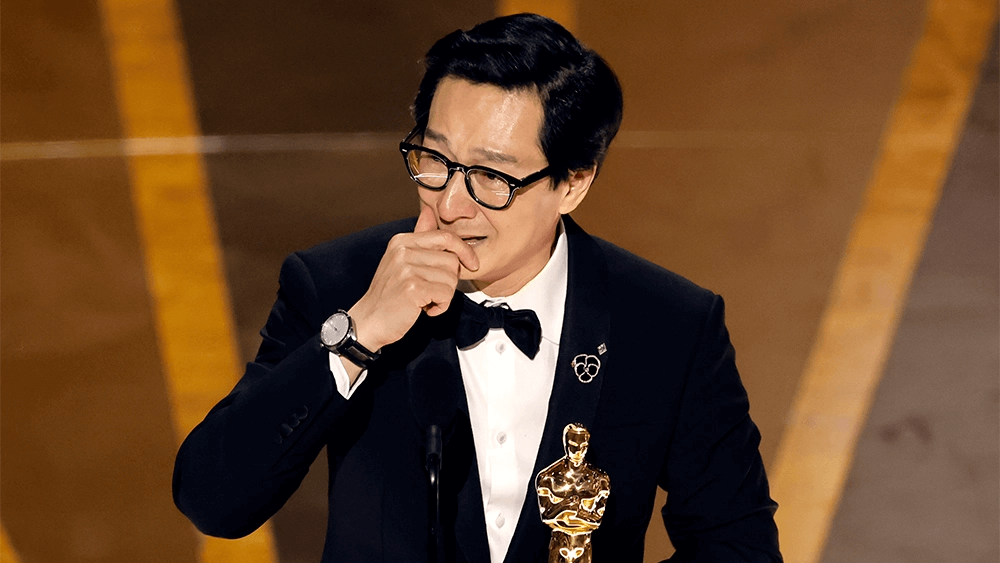 Source: variety
Source: variety
For Quan, the winning marks a truly emotional coda to award season. He rose to his stardom before his teenage years, playing Harrison Ford's sidekick in 1984's “Indiana Jones and the Temple of Doom” and appearing in 1985’s “The Goonies," he admitted he felt "lucky". However, the actor quit acting soon after that because he realized there weren't many substantial movie roles for Asian people. He didn't come back to his acting career until 2021 in "Everything Everywhere: as Waymond Wang, the goofy husband to Michelle Yeoh's multiverse-straddling laundromat owner.
The 51-year-old actor tearfully started his speech by talking about his fraught journey toward stardom. "My journey began on a boat. I spent a year in a refugee camp. And somehow, I ended up here on Hollywood's biggest stage. They say stories like this only happen in the Movies. I cannot believe it's happening to me! This is the American dream."The actor also gave an emotional shout-out to his 84-year-old mother, who was watching the ceremony at home: "Mum! I just won an Oscar!".
Born in Vietnam in 1971, Quan was a future star in, what was at the time, a war-torn country. At the age of 7, he fled his home country and found refuge in Hong Kong with his father and six siblings, while his mother moved to Malaysia.
His whole family wouldn't reunite for a year until they settled down in Los Angeles in 1979.
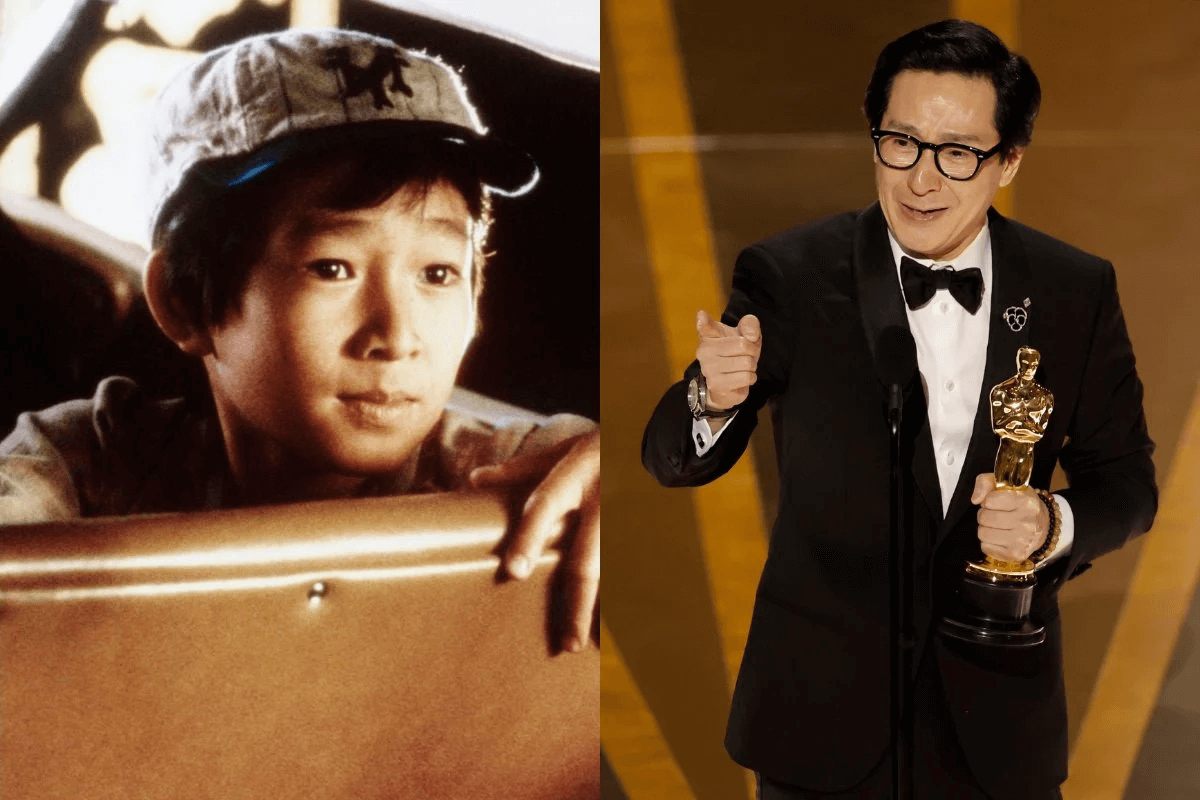 Source: mamamia
Source: mamamia
"I was giving him direction and notes from behind the camera," he said to Yahoo Entertainment.
After meeting Steven Spielberg, he was chosen for the rose as Short Round, Indiana Jones' youthful sidekick - it was a position production had casting issues until the vibrant Quan came along. It was also a challenge for his first role when acting with Harrison Ford but he nailed it and said the Hollywood legend took time to work with Spielberg behind the camera to "get that performance out of me". Harrison Ford was also the one who taught him how to swim.
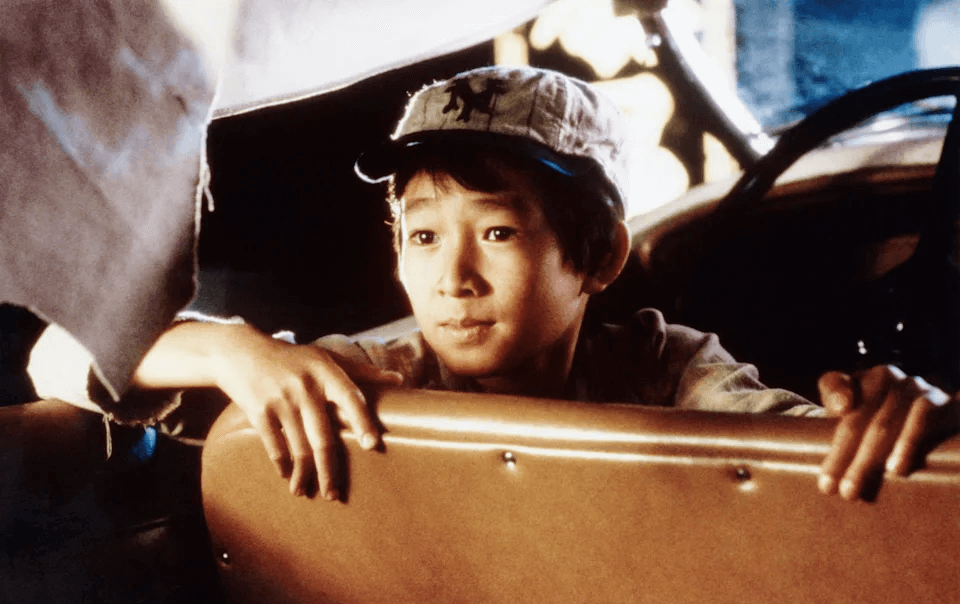 Source: Paramount Pictures.
Source: Paramount Pictures.
"I didn’t go looking to be an actor; acting found me. To work with Steven Spielberg, George Lucas and Harrison Ford on your first movie…. There was nowhere to go but downhill," he told LA Times. "I think that’s why, when I got older and the road became rugged, I felt like I didn’t pay my dues. I started questioning myself when the phone stopped ringing and the opportunities dried up."
A year later, he was handed his next starring role in The Goonies – a film that followed the crazy adventures of seven kids. It became a cult classic.
"I walked into Steven's office, and he said: 'Ke, I got you your next movie. It's called The Goonies and it's about seven kids who go on an adventure. You will play Data, who is kind of like James Bond with all these amazing gadgets, but they never work unless your life depends on it,'" he said to Yahoo Entertainment.
"Sure enough, a few months later, I was on a set with six other kids seeing a full-sized pirate ship in front of us."
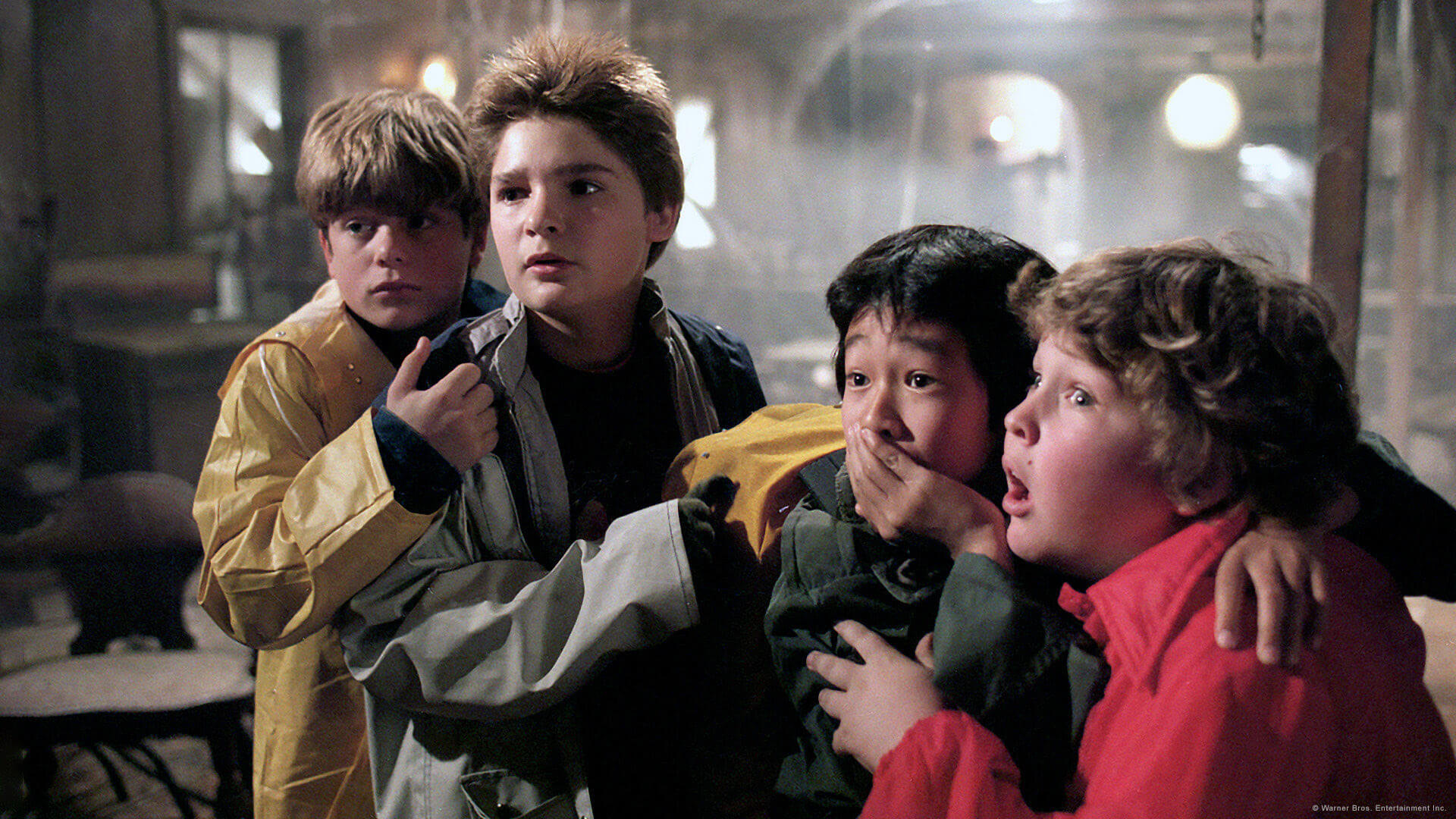 Source: Amblin Entertainment.
Source: Amblin Entertainment.
The roles Quan got were nothing short of legendary- but they were not only few and far between but also incorporated harmful Asian stereotypes.
While others told him they wanted to be like his characters when they grew up, he understood Hollywood's poor performance of Asian people."When I was in my late teens and early twenties, I really wanted to pursue acting and there were just not a lot of opportunities for me," he recalled. "I remember reading a lot of scripts where the Asian character either didn't even have a name or if they did, they would have two or three lines. And every Asian actor in the industry at that time was fighting for this tiny role."
The lack of opportunity was discouraging and by the 1990s, he stepped away from acting once again and assistant director in both Hollywood and Hong Kong. By that time, he met his wife Echo Quan.
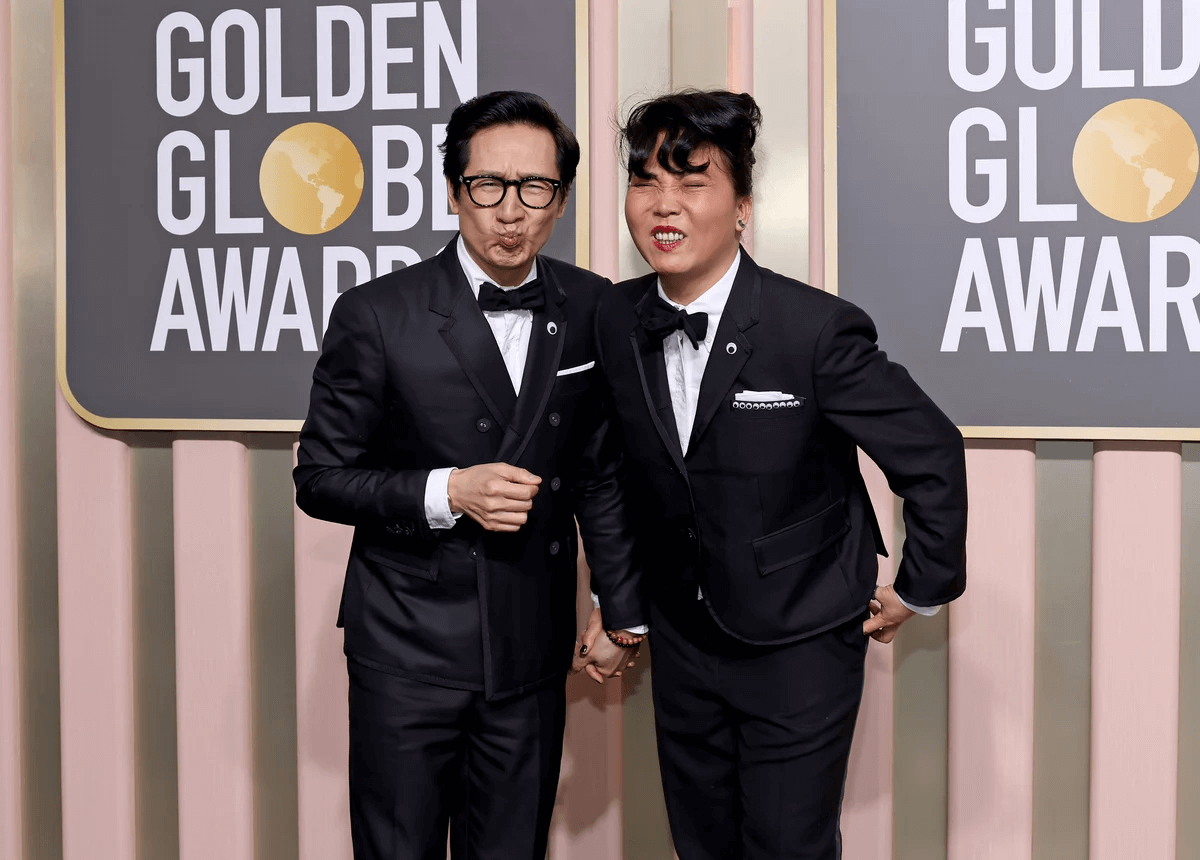 Source: Getty
Source: Getty
He claimed that his career path made him "content" enough but in 2018, the itch to act came crawling back up again as he watched Jon M. Chi's blockbuster romantic comedy, Crazy Rich Asians.
"I had serious FOMO watching that movie," he told Yahoo Entertainment. "I wished I was up there with my fellow Asian actors, and that was really when I decided to get back into acting."And when he got that feeling, he was called for the role that would be his "second act" – as Waymond Wang in Everything Everywhere All At Once. Alongside fellow titan in the film industry, Michelle Yeoh, the duo went on an action-packed adventure to save the multiverse.
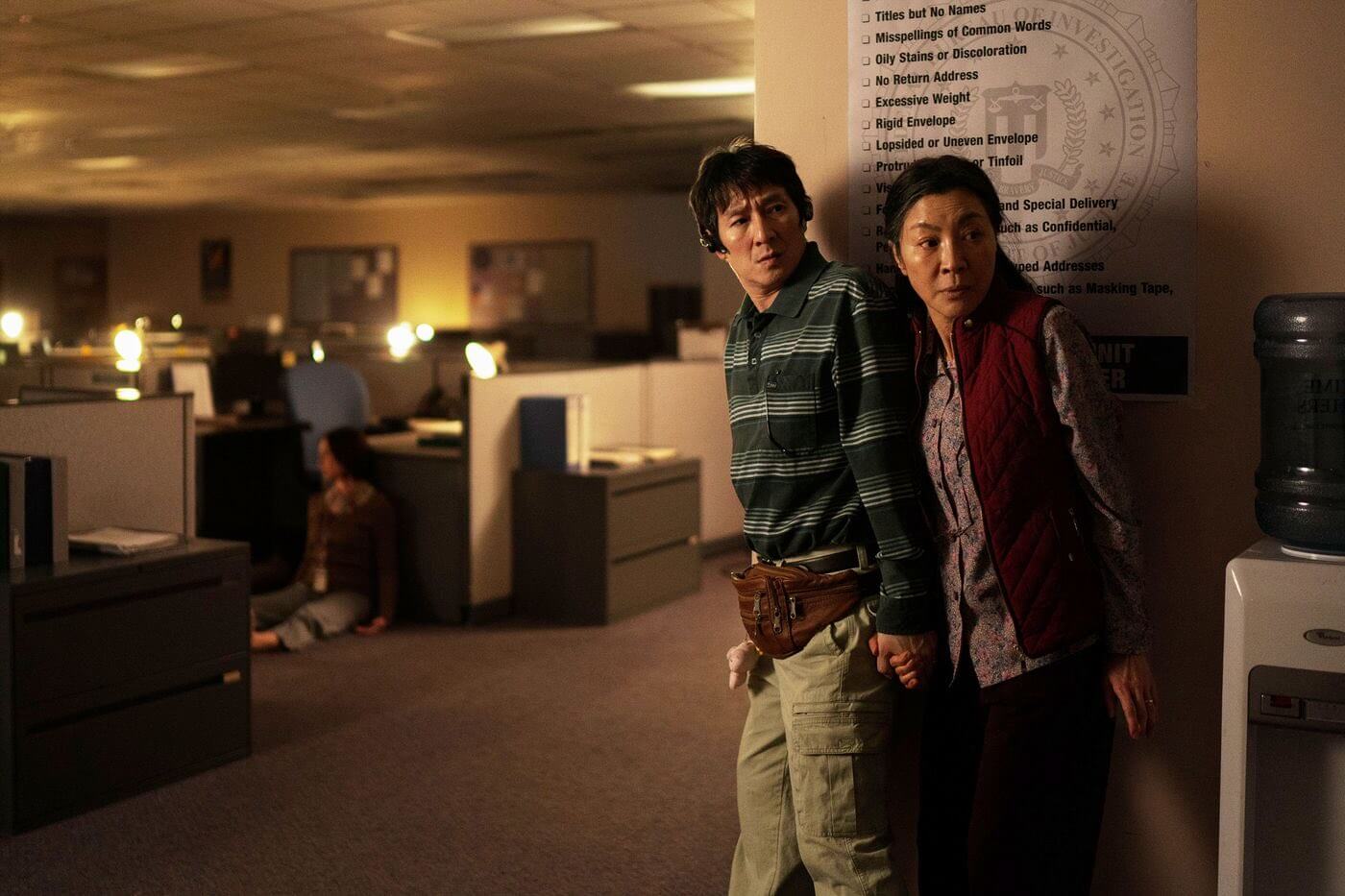 Source: A24
Source: A24
In his acceptance speech, he made people cry when describing his struggles as a young Asian actor in Hollywood.
"I felt so very lucky to have been chosen, but as I grew older, I started to wonder if that was it... if that was just luck," Quan said.
"For so many years, I was afraid I had nothing more to offer. That no matter what I did, I would never surpass what I achieved as a kid."
Quan paid tribute to the Everything Everywhere All At Once directors Daniel Kwan and Daniel Scheinert, stating: "Thankfully, more than 30 years later, two guys thought of me. They remembered that kid and they gave me an opportunity to try again."
After over 3 decades long, Quan returned and was determined to make his mark. "For many years, I just had to be realistic," he said of Asian representation in media. "Now, I don’t have to be only realistic. I can also be optimistic."